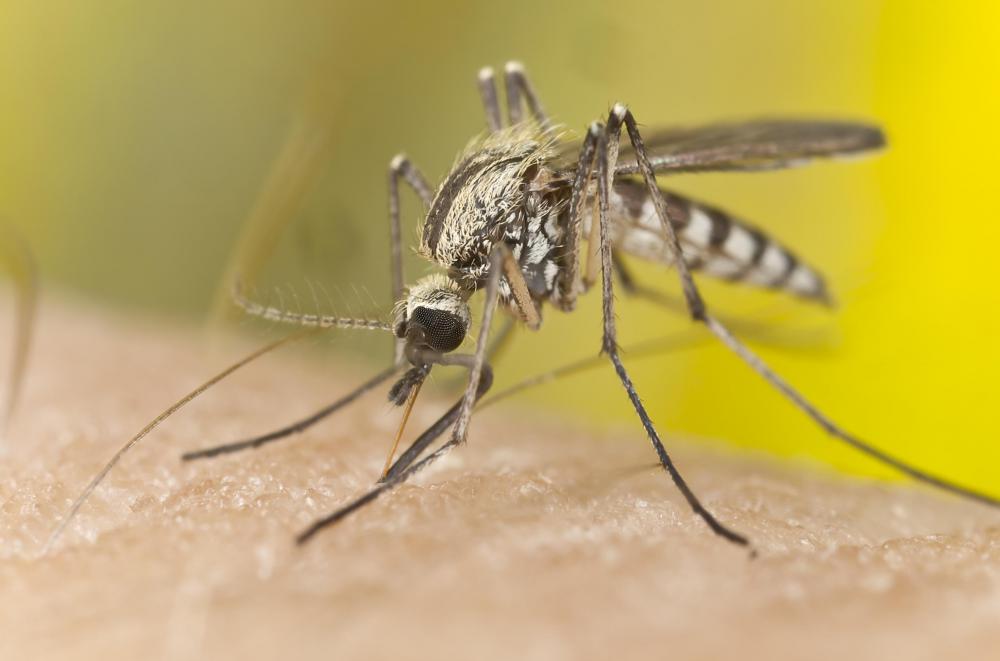At AllThingsNature, we're committed to delivering accurate, trustworthy information. Our expert-authored content is rigorously fact-checked and sourced from credible authorities. Discover how we uphold the highest standards in providing you with reliable knowledge.
What is a Guppy?
The guppy is a freshwater fish that was originally found in certain South American and Caribbean locations, though it has since been introduced to areas all around the world. Its scientific name is Poecilia reticulata, while another name they are commonly known by is the millionfish. In addition to its popularity as a freshwater aquarium fish, the guppy has been introduced to many ecosystems to feed on pests. Guppies are typically 1 to 2.4 inches (2.5 to 6.0 cm) in length, give birth to live young, and exhibit a range of appearances due to selective breeding.
Guppies were originally noticed on Caribbean islands, such as Barbados, and in South American countries, like Brazil and Venezuela. They are now found all over the world, with examples of both accidental and intentional introduction. In cases where the introduction was intentional, the reason may have been for the guppies to act as a control for mosquito populations. The guppy will feed on mosquito larvae, but may also act as an invasive species and adversely affect the ecosystem.

The guppy is sexually dimorphic, meaning females are larger and colored differently than males. While wild female guppies will typically have uniformly gray bodies, males may exhibit a range of different colors and patterns. Additionally, selective breeding has led to many different strains of guppies. These fish are still the same species, but will show similar visual characteristics to other individuals within the same strain. These strains include varieties, such as grass and snake-skin, and exhibit variations in both color and fin shape.
With its many different varieties, the guppy is a widespread aquarium fish. They may survive in water with a high saline content, despite being freshwater fish, so they are often used in both tropical freshwater and saltwater aquariums. Guppies are generally considered good fish for community tanks, though the males may occasionally show aggression with each other and towards other top swimmers.
Guppies will breed in both salt and freshwater tanks, and gestation typically takes a month or less. They are ovoviparous, meaning that, though they birth live young, there is no amniotic connection between the mother and the gestating eggs. Once born, the baby fry are immediately able to swim and eat, and the female guppy may be able to conceive again within hours. They are therefore known as very prolific breeders, and space may quickly become an issue in smaller aquariums.
Frequently Asked Questions
What is a guppy and where do they originate from?
Guppies are small, colorful freshwater fish native to northeastern South America. They belong to the Poeciliidae family and are scientifically known as Poecilia reticulata. Guppies have been widely distributed around the world due to their popularity in the aquarium trade and adaptability to various environments.
How can you differentiate between male and female guppies?
Male guppies are typically smaller and more vibrantly colored than females, with elaborate tail and dorsal fins. Females are larger, with rounder bodies and less pronounced coloring. The males also possess a modified anal fin called a gonopodium, which is used for reproduction, making them easily distinguishable from females.
What do guppies eat and how often should they be fed?
Guppies are omnivorous and thrive on a diet of flake food, brine shrimp, bloodworms, and algae. They should be fed once or twice a day, providing only as much food as they can consume in a few minutes to prevent overfeeding and maintain water quality.
How long do guppies typically live?
Guppies generally live for 1 to 2 years, but with optimal care, they can live up to 5 years. Factors such as tank conditions, diet, and genetics play a significant role in determining their lifespan.
What are the ideal tank conditions for keeping guppies?
Guppies prefer warm water with temperatures ranging from 72 to 82 degrees Fahrenheit (22 to 28 degrees Celsius). They require a pH level between 6.8 and 7.8 and benefit from a well-planted tank with ample space to swim. A filter is essential to keep the water clean, and regular water changes are recommended.
Can guppies be kept with other fish species?
Yes, guppies are peaceful and can be kept with other non-aggressive fish species. Ideal tank mates include other small community fish such as mollies, platies, and certain types of tetras. It's important to avoid housing them with larger, predatory fish that may see guppies as prey.
AS FEATURED ON:
AS FEATURED ON:











Discuss this Article
Post your comments